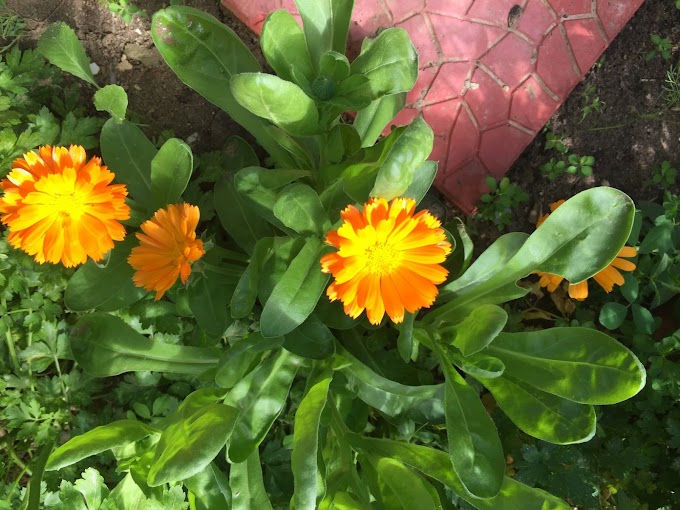G(caps)ardening is not just a hobby; it's a way of life for me. It brings joy, enriches my daily life, and It's a journey of discovering the wonders of nature. One fascinating plant that can add a touch of elegance and vibrancy to your garden paths and walkways is the ornamental cabbage. Known for its striking colors and unique appearance, ornamental cabbage is a favorite among all flowers enthusiasts gardeners. If you're a beginner gardener eager to learn how to collect ornamental cabbage seeds, you've come to the right place. In this comprehensive guide, we will take you through the entire process, step by step, ensuring you have a successful seed collection experience.
(toc)(Table of Content)
Understanding Ornamental Cabbage
Before you start collecting seeds, it's essential to have a good understanding of the ornamental cabbage plant. Ornamental cabbages or ornamental kale are known for their colorful, rosette-shaped leaves. These leaves can range in color from deep purples to vibrant pinks, white and green. Making them a visually appealing addition to any garden. The plant itself is biennial, meaning it completes its life cycle in two years. Seed collection usually takes place during the second year, when the plant is in the flowering stage.
Choosing the Right Ornamental Cabbage Varieties
There are several ornamental cabbage varieties to choose from, each with its own unique color and texture. Some popular varieties include:
Select the varieties that appeal to your aesthetic preferences and climate conditions, keeping in mind that different varieties may produce seeds at slightly different rates.
Timing Is Crucial
Timing plays a critical role in seed collection. Ornamental cabbage is a biennial plant, and seed collection usually occurs in the plant's second year when it starts to flower. Keep an eye on your plants to identify when they enter the flowering stage, which typically happens in late spring or early summer. This is the ideal time to start collecting seeds.
Tools You'll Need
To collect ornamental cabbage seeds, you'll need a few basic gardening tools:
Small paper bags or envelopes
Having these tools ready will make the process smoother and more efficient.
How To Collect Ornamental Cabbage Seeds
Now, let's delve into the actual seed collection process:
Wait for the Pods to Dry: Allow the seed pods to mature and dry out on the plant. They will change from green to brown or tan, indicating that the seeds are ready for harvest.
Remove the Seeds: Over a clean, dry surface. Use your fingers to extract the seeds. You'll find small, round seeds inside.
Store the Seeds: Once you've extracted the seeds, transfer them to a paper towel or a small plate. Allow them to air dry for a few days, ensuring they are completely dry. Place your dried seeds into a small envelope or an airtight container. Be sure to label with the date and the type of the ornamental cabbage seeds. Properly stored seeds can remain viable for 4 years.
Preparing for the Next Growing Season
Now that you've successfully collected your ornamental cabbage seeds, you can plan for the next growing season. Here are some tips to ensure a thriving garden:
Start seeds indoors in late winter or early spring to transplant them outdoors when the weather warms up.
Plant in well-drained soil and provide adequate sunlight for healthy growth.
Water regularly but avoid overwatering, as ornamental cabbages prefer slightly moist soil.
Watch How To Collect Ornamental Cabbage Seeds Video
Collecting ornamental cabbage seeds is a rewarding experience for beginner gardeners. Not only you enjoy the vibrant colors and unique foliage of these unique plants, but you can also continue the cycle of growth and beauty in your garden for years to come. Remember to choose your favorite varieties, time your seed collection correctly, and follow the steps outlined in this guide.
Want to read:
Happy gardening!
This web site is a participant in the Amazon Services LLC Associates Program, an affiliate advertising program designed to provide a means for sites to earn advertising fees by advertising and linking to amazon. Some of the links to products on this site are affiliate links. These are products that I've used or recommend based from homesteading experience. I do make a small commission (at no extra cost to you) from these sales.(alert-warning)
















